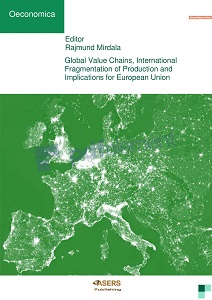Offshoring and labor demand changes in case of the Slovak Republic
Offshoring and labor demand changes in case of the Slovak Republic
Author(s): Júlia Ďurčová
Subject(s): Economy, Supranational / Global Economy, Business Economy / Management
Published by: ASERS Publishing
Keywords: labor demand; global value chains; employment; offshoring; translog cost function;
Summary/Abstract: Offshoring represents one of the main characteristics of the current stage of globalization. It is often felt that whilst offshoring leads to important gains to producers and consumers, the costs appear to fall disproportionately on workers, especially those with low levels of skills. The research for OECD countries shows that the demand for skilled workers relative to unskilled workers as well as the relative wages of skilled workers have risen in OECD countries. The question is whether increased participation in GVCs is a cause of the rising demand for skilled workers or whether outsourcing and offshoring is a large enough activity to have an adverse effect on labor market. The effect of offshoring on labor demand is estimated using the system of cost share equations derived from translog cost function. The data come from World Input-Output Database (WIOD). The results for the Slovak Republic indicate that the rising participation of Slovak industry on global value chains did not lead to dramatically changes in labor structure during last 17 years. However, the disproportionate share of industrial sectors as well as capital and labor share in value added creation still remain and raise. Moreover, the results clearly reveal the differences between domestic and foreign orientated industry.
Book: Global Value Chains, International Fragmentation of Production and Implications for European Union
- Page Range: 121-141
- Page Count: 21
- Publication Year: 2018
- Language: English
- Content File-PDF

